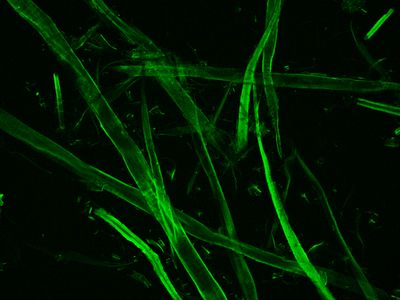Föreläsningar:
Papper som konstruktionsmaterial, förpackningars mekaniska egenskaper, bigning och vikning av kartong, bandynamik i papperstransportsystem, statistiska aspekter på haverier i pappersprodukter, brottegenskaper, fuktinducerade deformationer, krypning och relaxation, trycknypsmekanik för papper och kartong, mikromekanik, träbiokompositer.
Laborationer:
Mekanisk provning av papper och kartong, design och provning av kartongförpackning, analys med FEM av kartongförpackning.
